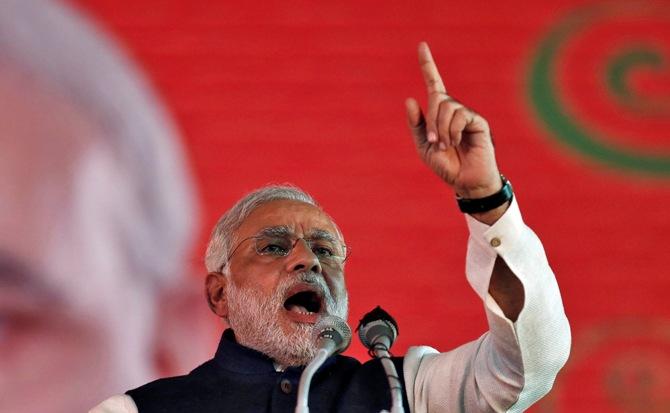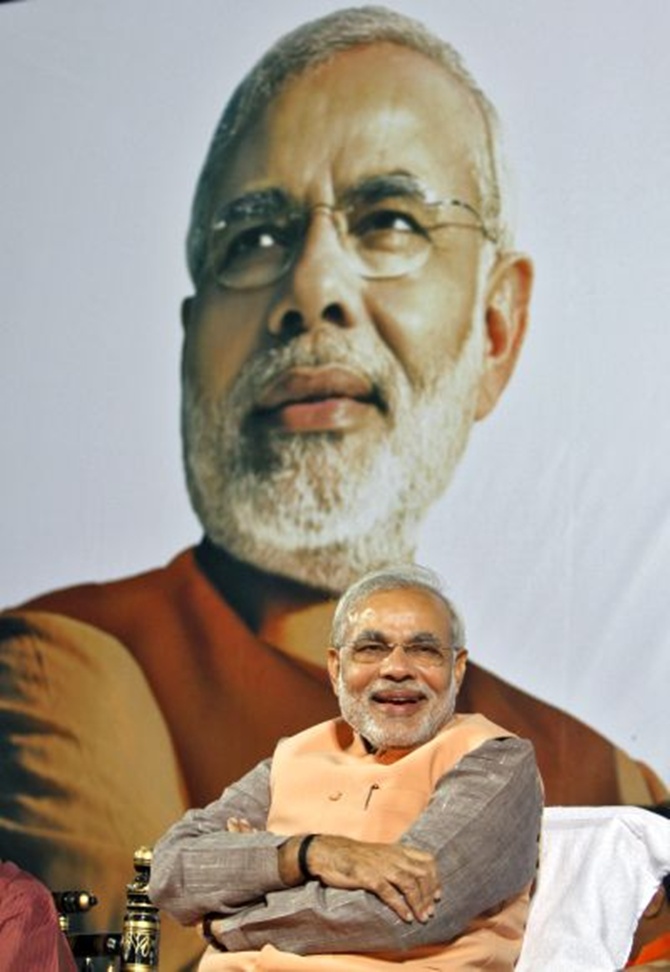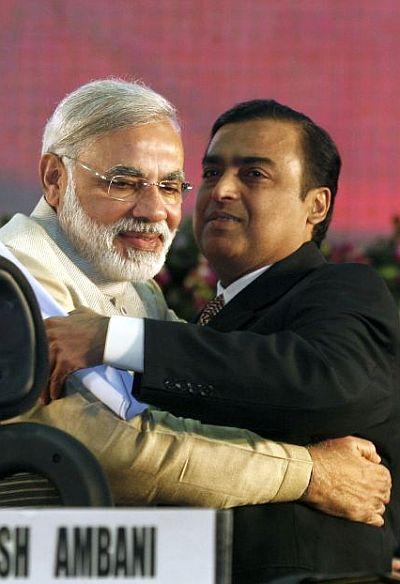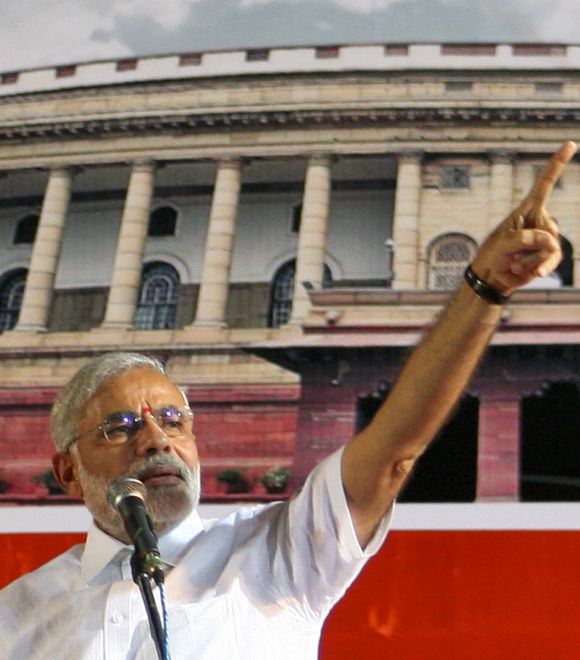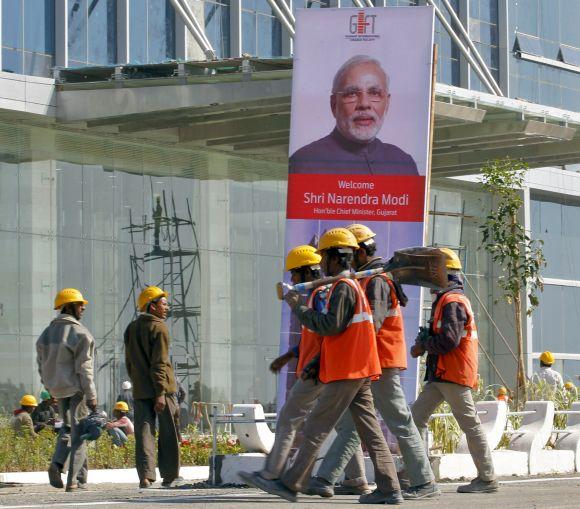 | « Back to article | Print this article |
India's growth declined to 4.8% from 8.4% under UPA: Modi
Accusing the Congress-led United Progressive Alliance government of pushing back the country by a decade, Bharatiya Janata Party's prime ministerial candidate Narendra Modi on Thursday said that he would endeavour to provide effective governance as it was more important than good policies.
"We need direction, determination and dedication. . . We need good governance. Bad governance is like diabetes which invites all kinds of ailments", he said while unveiling his vision for development at a seminar on 'A New Growth Paradigm for India'.
Click NEXT to read further. . .
India's growth declined to 4.8% from 8.4% under UPA: Modi
Modi further said: "We have reached a stage where the country is slipping back. . . We have lost a decade, we have to start afresh.
“When Atal Bihari Vajpayee left, the growth was 8.4 per cent, now the growth has come down to 4.8 per cent."
India, he said, was not only suffering from fiscal deficit but also from "governance deficit, trust deficit, security deficit and moral deficit.
"There is despondency.
“We have lost confidence.
“If we can regain confidence, we can not only move but can also run."
Observing that India is a young country with democratic institutions and demand for products, Modi said, "we should consider them as strengths and make policies keeping them in view".
Click NEXT to read further. . .
India's growth declined to 4.8% from 8.4% under UPA: Modi
Referring to specific issues, Modi said that he would attempt to focus equally on the three pillars of growth -- manufacturing, agriculture and services sectors, and try to bridge the gap between rich and poor to make development more inclusive.
The Gujarat chief minister said economic growth should be inclusive, speedy and yet sustainable.
He said the development agenda should be ‘respectful to individual, responsive to innovation and responsible towards future generation’ and governments should work towards improving standard of living and providing social justice.
Click NEXT to read further. . .
India's growth declined to 4.8% from 8.4% under UPA: Modi
Referring to plethora of laws, he said the need of the hour was to do way with the ‘jungle of laws’.
In an apparent indication to BJP's election manifesto, Modi said a political party's manifesto should also talk about the number of laws that would be taken off the books.
On energy security, Modi said nature has been kind to India and it should exploit its solar, wind and hydro power availability.
Talking about centre-state relationships, Modi said each state has different strengths and there could not be a ‘tailor-made’ solution for all of them.
"India is such a large country, some people think that one tailor made solution can be applied everywhere.
“This is the biggest mistake," he said.
Click NEXT to read further. . .
India's growth declined to 4.8% from 8.4% under UPA: Modi
Modi said the country's Prime Minister and chief ministers should work in tandem.
Replying to a question related to regulatory issues, he said financial decisions should be based on commercial considerations and not on political concerns.
Taking a jibe at the Centre, Modi said that even a municipal head takes more decisions than the government in Delhi.
Stressing that good governance was the key to growth, the he said that ‘bad governance is like diabetics’ which leads to main ailments.
"Good governance is more potent than policies," he added.
On the issue of attracting foreign direct investment, Modi said that in India even the human resource development sector presents a huge opportunity for foreign investment.
Click NEXT to read further. . .
India's growth declined to 4.8% from 8.4% under UPA: Modi
He said it is the responsibility of the government to remove hurdles and create an environment for foreign investments.
Modi further said India's foreign missions should now focus more on trade and commerce to increase exports and reduce dependence on imports.
". . .whole of our system needs to be given a new direction because we cannot remain disconnected with world.
“We have to make a strong footing in the changing global paradigm," he said, adding that India's advantages are democracy, demography and demand.
Modi further said there was a need for get in mission mode to remove poverty from the country while stressing on giving ‘dignity’ to even the poorest workers as everybody has aspirations.
